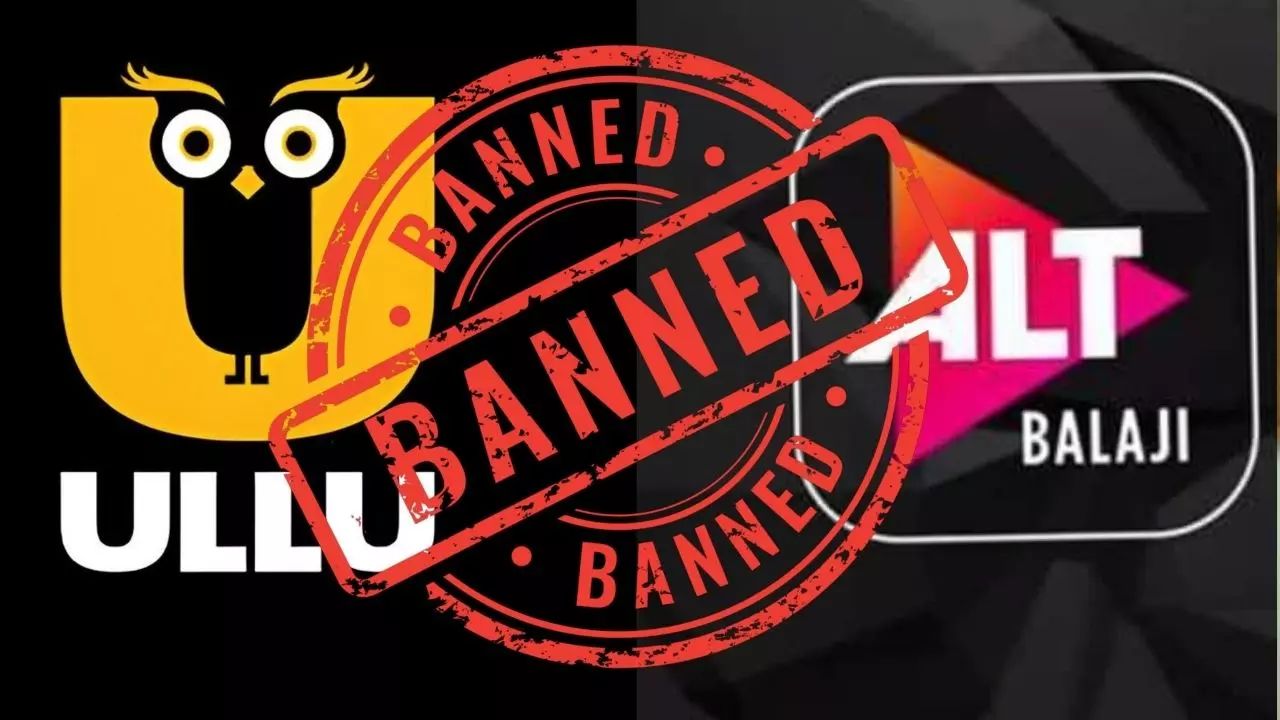Introduction
In a significant move aimed at regulating digital content in India, the Government of India has taken a bold step by blocking 25 OTT platforms, including Ullu, ALTBalaji (now ALTT), Desiflix, and several others. The reason? These platforms were allegedly hosting and distributing obscene, vulgar, and pornographic material, which violated multiple laws and ethical standards.
This crackdown sends a strong message: Online content, especially on streaming platforms, must adhere to Indian laws and social norms.
⚖️ Why Were These Platforms Blocked?
The Ministry of Information and Broadcasting (MIB) issued official orders instructing internet service providers to block access to 25 OTT platforms. The action was based on findings that several of these platforms were publishing content containing prolonged nudity, sexual scenes, and vulgar dialogues—with little to no artistic, educational, or narrative justification.
These violations were not just about “bold content,” but rather about crossing the line into indecency, often with no age-restriction warnings, content labels, or moderation.
📜 Legal Grounds for the Ban
The Government’s action was based on violations of the following laws:
- Section 67 & 67A of the Information Technology Act, 2000 – Related to publishing or transmitting obscene and sexually explicit material in electronic form.
- Section 294 of Bharatiya Nyaya Sanhita, 2023 – Pertains to obscene acts and songs in public.
- Section 4 of the Indecent Representation of Women (Prohibition) Act, 1986 – Prohibits portrayal of women in an indecent or derogatory manner.
- Section 79(3)(b) of the IT Act – Platforms lose immunity if they do not act after being notified of illegal content.
Despite repeated warnings and notices, many platforms failed to take down the offensive material or adhere to self-regulation guidelines.
📉 A Recurring Pattern
This is not the first time OTT platforms have come under fire. The government has earlier taken down content or warned streaming platforms to follow self-regulatory guidelines, especially after increased complaints from citizens and civil society groups.
Several courts, including the Supreme Court and Delhi High Court, have also urged the government to implement stricter digital content laws, especially with the growing consumption of OTT content in India.
📺 Which OTT Platforms Are Affected?
While the government has not made the full list public through a press conference, sources reveal that the banned platforms include:
- Ullu
- ALTT (formerly ALTBalaji)
- Desiflix
- Big M Zoo
- NeonX
- Prime Play
- Hunters
- Dream Films
- Rabbit Movies
- Boom Movies
- MoodX
- Hothit
- Voovi
…and several others.
These platforms are known for producing web series and short films that often push the envelope on sexual content.
🌐 Impact on Viewers and Content Creators
This ban impacts not just viewers but also content creators, production houses, and actors who have been associated with these OTT platforms. Many small-scale creators and artists found a platform for visibility through these apps, albeit in controversial formats.
However, the lack of content moderation, age restrictions, and viewer guidance has become a serious concern.
🧩 The Debate: Censorship vs. Cultural Sensitivity
This action has sparked a nationwide debate:
- Some argue it is a much-needed cleanup to protect Indian values and prevent the normalization of pornographic content in everyday media.
- Others see it as a move toward censorship, potentially affecting creative freedom and independent storytelling in India.
There’s no denying the thin line between creative liberty and public decency, and India’s digital ecosystem now faces the challenge of striking a balance.
📢 What’s Next?
The government is currently working on an updated framework to regulate OTT platforms, including a proposed Broadcasting Regulation Bill, which may soon be introduced for public consultation. This law aims to bring OTT platforms under a more structured code, similar to television and print media regulations.
Until then, OTT platforms are expected to:
- Follow self-regulatory codes
- Implement age restrictions and content warnings
- Ensure editorial responsibility
✅ Conclusion
The ban on 25 OTT platforms, including Ullu and ALTT, is a landmark moment in India’s digital history. It’s a warning shot to content creators and platforms that freedom comes with responsibility.
In an age where digital consumption is at its peak, maintaining a balance between creative expression and societal norms is more critical than ever. As the OTT space continues to evolve, so must the rules that govern it—ensuring a safe, respectful, and enriching viewing experience for all.








